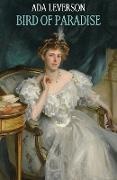Read more
In London, before the First World War, where in society love and money predominate, Bertha and Nigel had been inseparable. But then Nigel felt he had to focus on the economics of life, and after all Bertha's family were quite modestly off. Whereas the heiress Mary, also interested in him but not anywhere near so charming, was very well set up. His decision was made.
Though initially heartbroken, Bertha realises quickly that she has escaped from a delusion. Equanimity returns, and she finds in Percy Kellynch a devoted lover, though one a little more sober and less racy. They marry, as do Nigel and Mary, and over time the two become friends again, though now with wise awareness on Bertha's side. Nigel begins to see his error, as Mary's jealousy and her wish to supervise his life take their toll. He finds comfort in simply seeing Bertha initially, but inevitably begins to wish for more. Bertha is not interested, having moved on, but, if noticed, Nigel's attentions could be misconstrued...
In the meantime, Bertha is also looking out for the future of a young friend, Madeline Irwin, who is smitten with Rupert Denison, a young man with rather too much of a penchant for patronising and "educating" young women. Madeline is impulsive, a little inexperienced and quite needy. Her headlong qualities precipitate problems very readily.
As Bertha negotiates several crises arising from Nigel's reviving attachment, she also tries to assist Madeline in avoiding her own self-created disasters. Much depends on Bertha's talent for good management and wise counsel in the perils of both their lives. She is determined to win over adversity, but it will be a strong test of her skills....
Bird of Paradise, Leverson's fifth novel, as radiant with wit and wisdom as those which preceded it, was first published in 1914.
About the author
Ada Esther Leverson was a British novelist and writer born on October 10, 1862, in Beddington, United Kingdom. She was best known for her wit and keen observations of society, which she skillfully weaved into her novels. Leverson's works often explore the complexities of love, relationships, and the social dynamics of the time. Her novels, such as Love's Shadow (1908) and Tenterhooks (1912), focus on romantic entanglements, personal dilemmas, and the intricacies of societal expectations. Her writing is marked by a light, witty tone, yet often subtly critiques the conventions of the upper classes. She was married to Ernest Leverson and was the daughter of Samuel Henry Beddington. Ada Leverson's literary career, while successful in her time, is perhaps most remembered for her contribution to the genre of the British social novel. She passed away on August 30, 1933, in Florence, Italy, at the age of 70. Despite a more subdued recognition today, her work remains appreciated for its deft portrayal of social mores and relationships during the late 19th and early 20th centuries.

